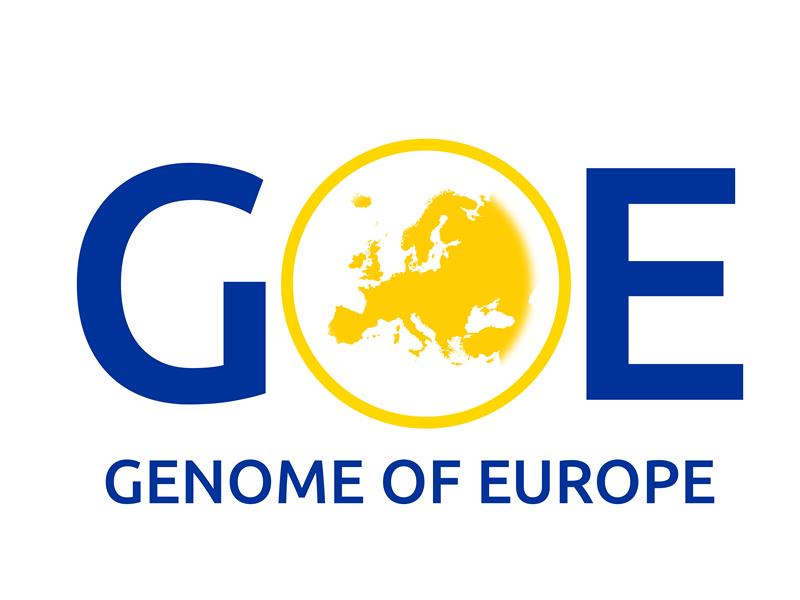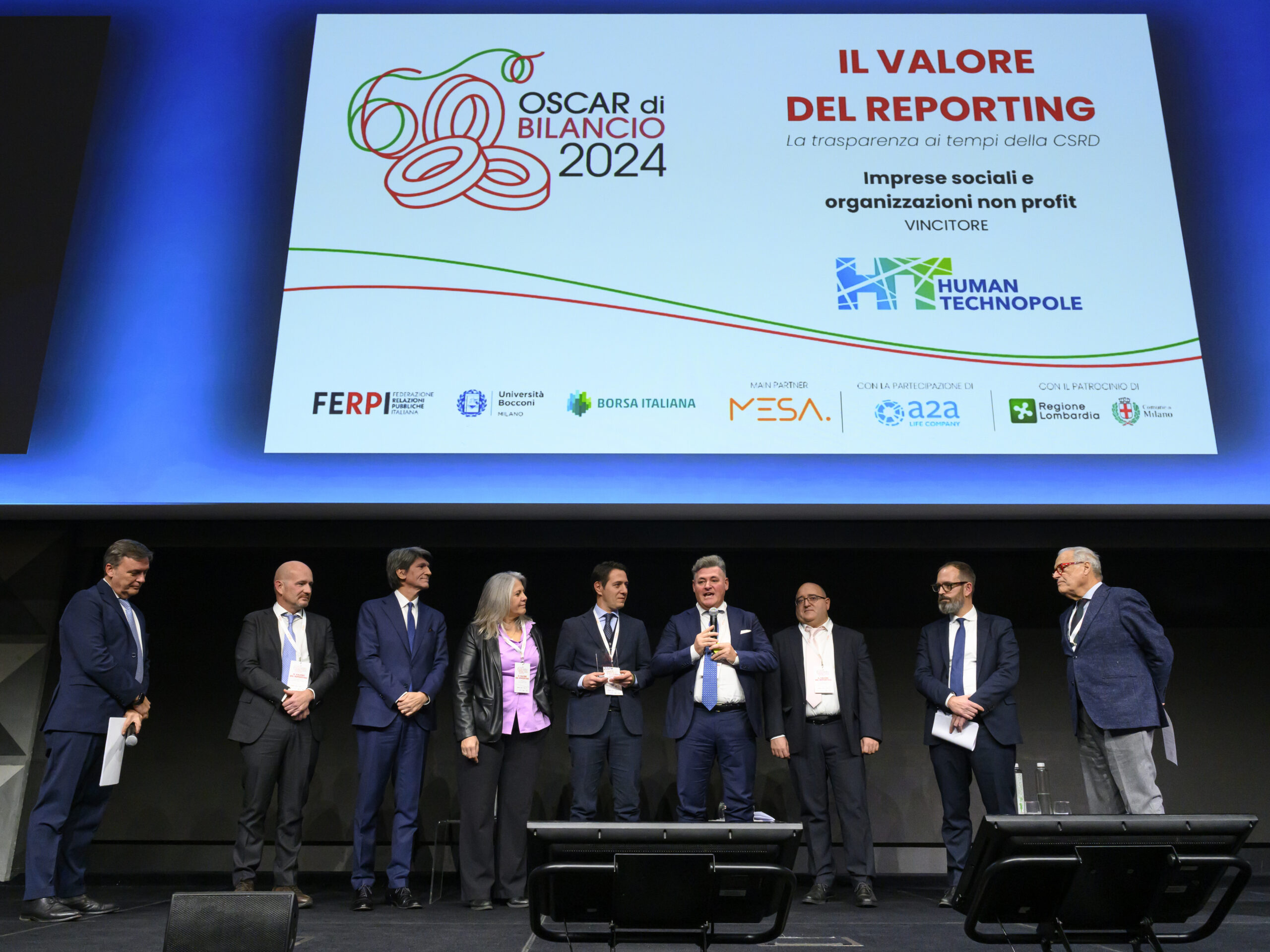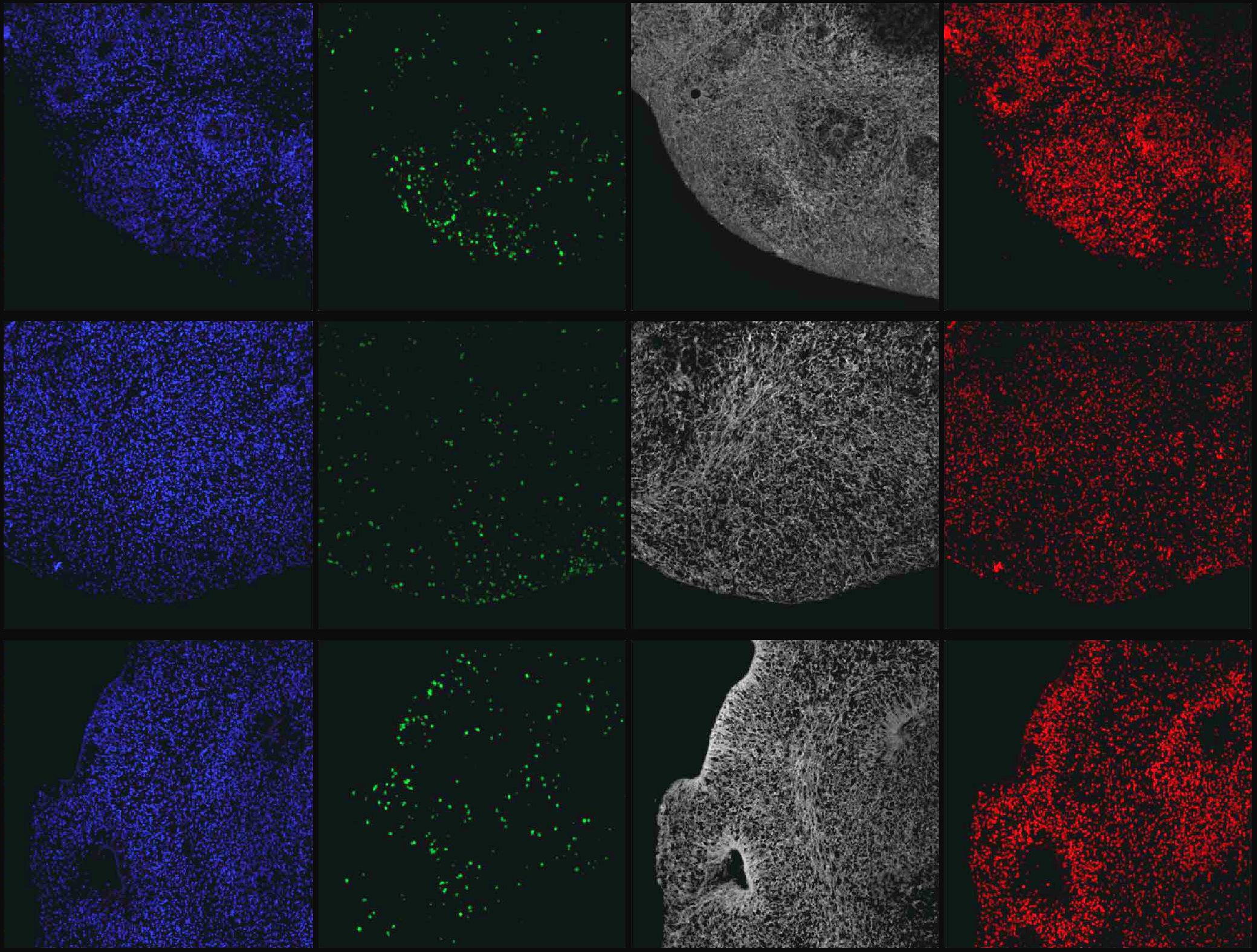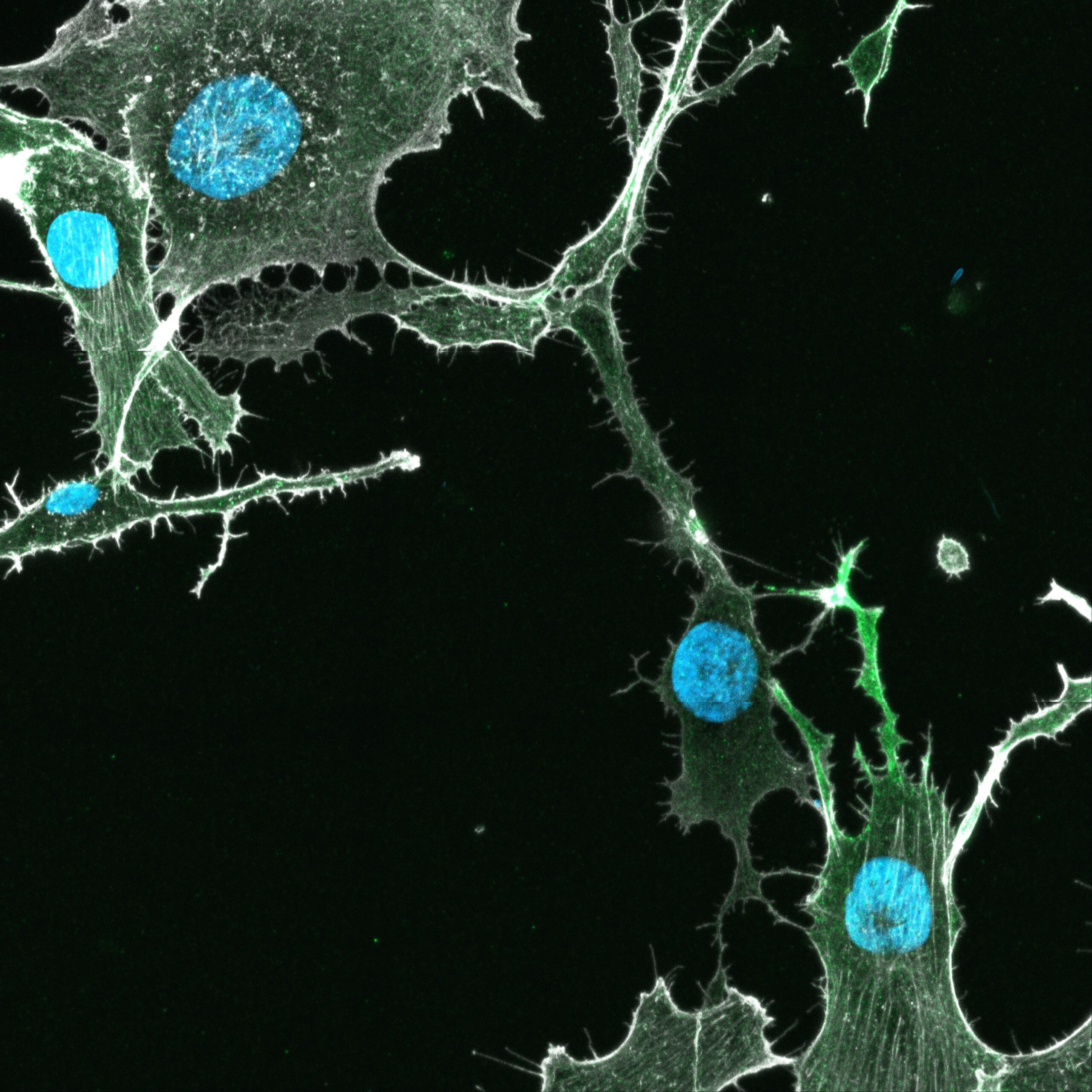Italy at the centre of the Genome of Europe project
The Human Technopole, ELIXIR Italia, the national node of the European life sciences research infrastructure coordinated by the National Research Council (CNR), and the Centro Cardiologico Monzino, as the Italian coordinating centre, have been selected as the Italian partners of Genome of Europe (GoE), the largest EU-funded genomic project, whose ultimate goal is to make […]
Human Technopole wins 2024 Oscar di Bilancio
On Friday 13 December, at Palazzo Mezzanotte in Milan, the Human Technopole Foundation’s ‘Integrated Report 2023’ received the Oscar di Bilancio in the social enterprises and non-profit organisations category. The award was presented to President Gianmario Verona, Elena Trovesi, Head of Administration, as well as the project leaders Giovanni Selmi, Head of Finance, and Alessandro […]
Mosaic Organoids to Study the Brains of Multiple Patients Simultaneously
An international team of scientists from Human Technopole and the University of Milan has developed and validated an innovative approach to studying human brain development across multiple individuals simultaneously using single organoids—laboratory models that replicate key cellular processes of human neurodevelopment. The research paves the way for in vitro population studies. Additionally, the scientists have developed a novel computational method to more accurately quantify the genetic identity of individual cells profiled from multiple individuals concurrently. The findings have been published in Nature Methods.
Cancer stem cell morphology predicts glioblastoma growth and resistance
Human Technopole researchers have identified adducin-γ (ADD3) as a crucial regulator of glioblastoma cancer stem cell morphology and intercellular bridges between tumour cells. These connections facilitate communication and allow tumour cells to share resources, evade chemotherapy, and survive in challenging conditions. The study has been funded by AIRC and the findings are published in Life Science Alliance.
The EU and Belgian Life Science Innovation Ecosystems, Brussels & Leuven | 4-5 Nov ’24
On November 4–5, the Human Technopole’s Centre for Innovation and Technology Transfer (CITT) organised a study tour to Belgium led by Fabio Terragni, member of the HT Management Committee delegate for technology transfer.




